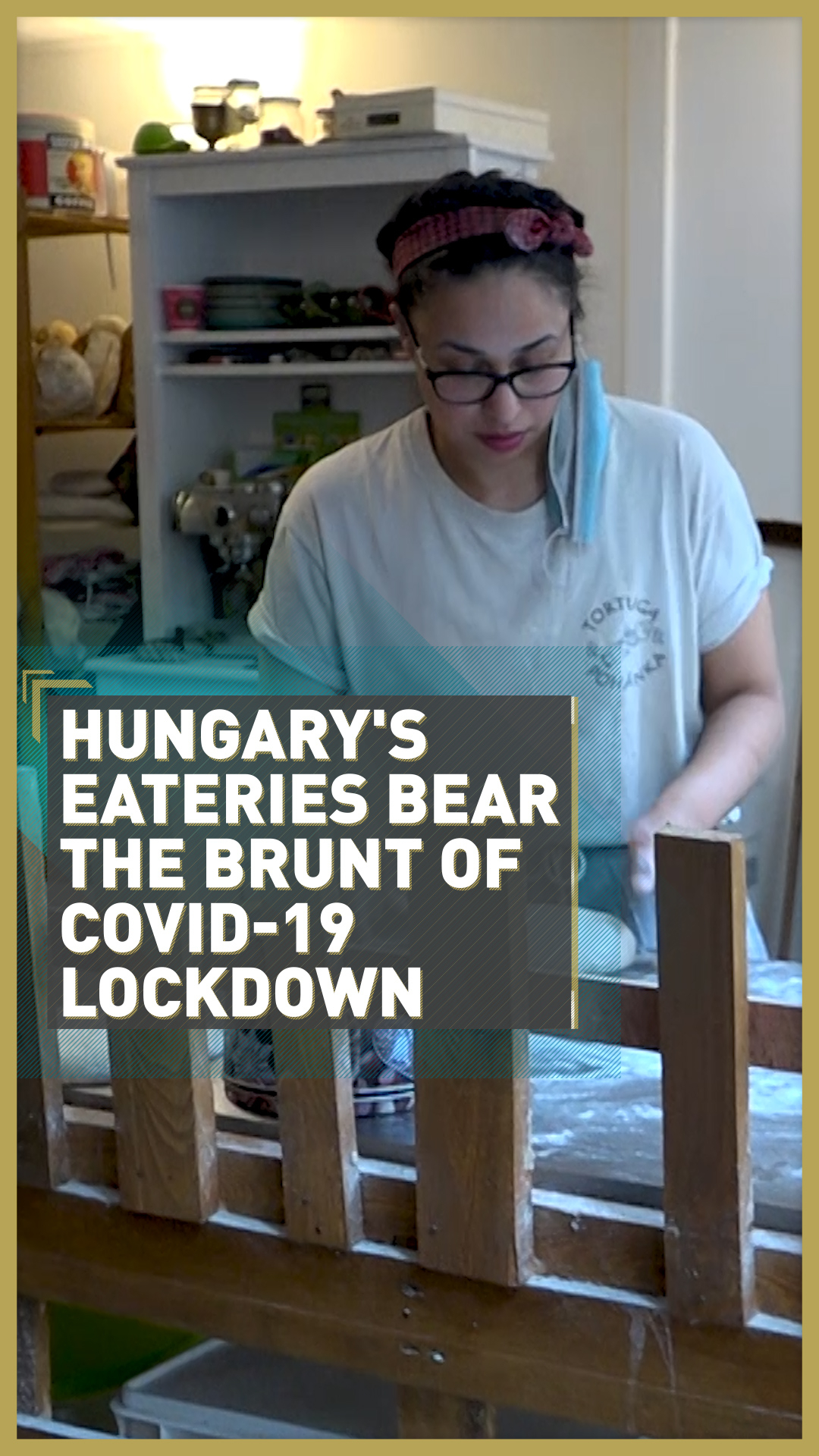02:51

Small cafes and restaurants in Budapest, many of which rely on the patronage of international tourists, are struggling to survive after being forced to stay closed almost a month.
Meanwhile, the pandemic and resulting lockdown measures have meant that business is booming for food delivery services.
The mornings are the busiest for Tortuga es Pohanka, a small Mexican bakery.
Even a city in lockdown needs bread, so loyal customers keep stopping by.
In fact, when Hungary's lockdown first began, people were stockpiling bread.
"People were coming in and buying no joke, like 10 loaves, eight loaves, and asking if they could store it in their fridge then take it out and put it in the oven," Tortuga es Pohanka owner Karen Avila said.
Avila feels fortunate that as a bakery, she's been permitted to stay open.
"We were pretty lucky that the people living here, even if they are staying at home, they're not taking a big risk crossing the street and getting bread," Avila said.
Cafes and restaurants that rely on table service aren't in such good shape – the government ordered them to close in mid-March.
The owner of Gusto Cafe in Budapest's district II has been paying his two staff for the past three weeks, although they've been unable to work.
"I didn't want to sack them," owner Marton Brady said. "If we work together, then we don't leave anybody behind. We're together in this, both in good and bad situations."

Cafes and restaurants have taken a massive hit due to lockdown measures imposed by Hungary. Zoltan Balogh/AP
Cafes and restaurants have taken a massive hit due to lockdown measures imposed by Hungary. Zoltan Balogh/AP
He said the government's help is nowhere near enough.
The only element of the small enterprises aid package for which Brady's business was eligible was a three-month suspension on certain taxes and contributions – which, of course, he must pay back.
His losses have surpassed $18,000 and by the end of the year he expects to have lost more than $30,000.
Cafes and restaurants in the countryside are now permitted to open if they have a terrace or outdoor area, but establishments in Budapest, where the infection rate is much higher, are ordered to remain closed except for takeaways.
The lockdown has been a recipe for success for food delivery services such as Wolt.
"We see an increase in order volume but at the same time we are now onboarding almost 600 restaurants to the Wolt platform," Wolt spokesman Akos Tajta said.
That is double the number of restaurants the delivery company had on its books before the pandemic broke out.
Wolt would not disclose its commission but competitor NetPincer takes a 30 percent cut, so for many small businesses that means they can't make a profit.
"We thought that it made no sense to pay for this service. From today, we will provide takeaways ourselves and see if that works," Brady said.
Fifty percent of his customers before the pandemic were tourists and with the uncertainty surrounding the return of international tourism to Hungary, the cafe's future is far from secure.
Check out The Pandemic Playbook, CGTN Europe's major investigation into the lessons learnt from COVID-19.